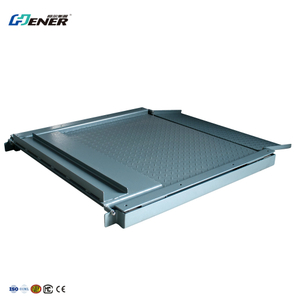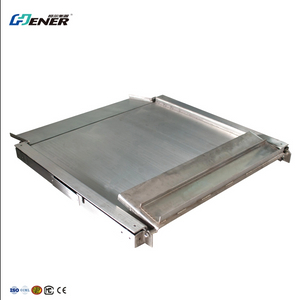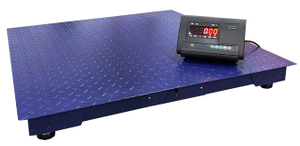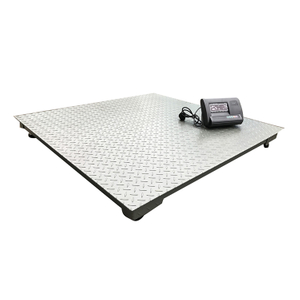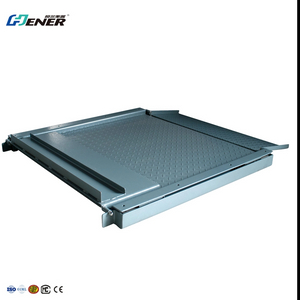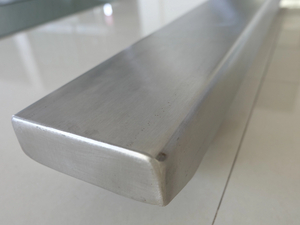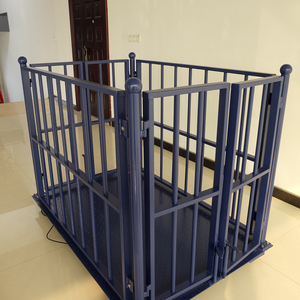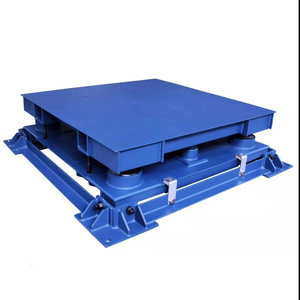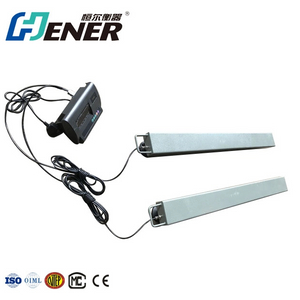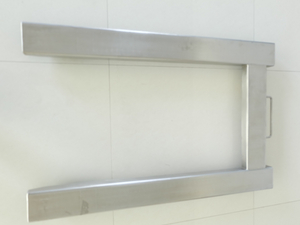
Weighing scales are essential tools in the automotive manufacturing industry, playing a critical role in ensuring precision, quality, and efficiency throughout the production process. Accurate measurement is crucial for maintaining the integrity of components, optimizing manufacturing processes, ensuring compliance with regulatory standards, and enhancing overall operational performance. This comprehensive exploration delves into the diverse applications of weighing scales in automotive manufacturing and underscores their significance in supporting industry standards and driving innovation.
Precision in Component Manufacturing
Material Measurement
In automotive manufacturing, the accurate measurement of raw materials is fundamental to producing high-quality components. Weighing scales are used to measure precise quantities of metals, plastics, and composites used in manufacturing various automotive parts. This precision is essential for maintaining the consistency and quality of the final products.
For example, in the production of aluminum alloy wheels, accurate measurement of aluminum and other alloying elements is critical to achieving the desired properties, such as strength, durability, and weight. Analytical balances and industrial scales are commonly used to ensure that the correct proportions of materials are used in the manufacturing process. This accuracy helps prevent defects, reduces waste, and ensures that the final product meets stringent quality standards.
Component Assembly
During the assembly of automotive components, weighing scales play a crucial role in ensuring that parts are manufactured to precise specifications. For instance, in the production of engine components, scales are used to measure the weight of pistons, crankshafts, and connecting rods. Accurate weight measurements are vital for achieving the correct balance and performance of the engine.
Weighing scales also support the assembly of electronic components, such as sensors and control modules. In these applications, precision is critical to ensuring the reliability and functionality of the electronic systems. By providing accurate weight measurements, scales help maintain the integrity of the components and support the overall quality of the automotive products.
Quality Control and Assurance
In-Process Quality Checks
Weighing scales are integral to quality control and assurance processes within the automotive manufacturing industry. In-process quality checks involve monitoring the weight of components at various stages of production to ensure they meet specified standards. For example, in the production of brake pads, scales are used to measure the weight of the pads to ensure they conform to the required specifications.
Accurate weight measurements help identify deviations from the specified weight range, allowing for timely corrective actions to be taken. This ensures that the final product meets quality standards and regulatory requirements. In-process quality checks also help prevent issues such as imbalances or improper functioning of automotive components, which could compromise the safety and performance of the vehicle.
Final Product Inspection
In the final stages of production, weighing scales are used to perform inspections of completed automotive products. This includes measuring the weight of finished vehicles to ensure they meet the specified weight limits and performance criteria. Accurate weight measurements are essential for verifying that the vehicle components are correctly assembled and that the vehicle meets regulatory standards for safety and emissions.
For example, in the production of electric vehicles, scales are used to measure the weight of battery packs and other critical components. This data helps ensure that the vehicle meets weight and performance specifications, optimizing its range, efficiency, and overall performance.
Optimizing Manufacturing Processes
Material Handling and Inventory Management
Weighing scales play a vital role in optimizing material handling and inventory management in automotive manufacturing. Accurate weight measurements help ensure that materials are efficiently managed, reducing waste and improving operational efficiency. For example, in the stamping process, scales are used to measure the weight of metal sheets before they are formed into automotive body panels. This data helps optimize material usage and reduce scrap rates.
Weighing scales are also used in inventory management to track the weight of raw materials, components, and finished products. Accurate weight data supports better inventory control, ensuring that materials are available when needed and reducing the risk of stockouts or overstock situations. This helps streamline production processes and improve overall operational efficiency.
Process Automation
In modern automotive manufacturing, process automation is essential for achieving high levels of precision and efficiency. Weighing scales are integrated into automated production lines to enhance accuracy and productivity. For example, automated weighing systems are used in the mixing of paints and coatings, ensuring that the correct proportions of pigments, solvents, and additives are used. This precision is essential for achieving consistent color and finish quality.
Automated weighing systems are also used in the assembly of complex components, such as engines and transmissions. These systems can automatically measure and dispense materials, reducing the risk of human error and increasing overall efficiency. By integrating weighing scales into automated processes, automotive manufacturers can achieve greater precision, reduce cycle times, and improve product quality.
Ensuring Regulatory Compliance
Safety and Emissions Regulations
Compliance with safety and emissions regulations is a critical aspect of automotive manufacturing. Regulatory authorities impose strict standards on the design, production, and performance of vehicles to ensure their safety and environmental impact. Weighing scales help automotive manufacturers comply with these regulations by providing accurate weight measurements of components and finished vehicles.
For example, in the production of fuel-efficient vehicles, scales are used to measure the weight of various components to ensure that the vehicle meets weight limits and fuel efficiency standards. Accurate weight measurements also support compliance with emissions regulations by ensuring that the vehicle components are correctly assembled and functioning as intended.
Documentation and Traceability
Weighing scales play a critical role in documentation and traceability within the automotive manufacturing industry. Accurate weight measurements are essential for maintaining detailed records of raw materials, components, and finished products. This data supports comprehensive documentation and traceability, helping companies demonstrate compliance with regulatory requirements and quality standards.
For example, automotive manufacturers are required to maintain records of the weight and composition of materials used in production. Accurate weight data ensures that these records are precise and reliable, supporting transparency and accountability in manufacturing practices. This information is critical for audits, inspections, and regulatory submissions, helping companies maintain compliance with industry standards and regulations.
Enhancing Safety and Performance
Vehicle Weight Management
Vehicle weight is a critical factor in determining the safety and performance of an automobile. Weighing scales help automotive manufacturers manage vehicle weight by providing accurate measurements of components and finished vehicles. This data is essential for optimizing vehicle design, improving fuel efficiency, and enhancing overall performance.
For example, in the design of lightweight vehicles, scales are used to measure the weight of various materials and components to ensure that the vehicle meets weight and performance specifications. Accurate weight measurements help manufacturers achieve the desired balance between weight reduction and structural integrity, enhancing the safety and performance of the vehicle.
Load Balancing
In the assembly of vehicles, weighing scales are used to ensure proper load balancing. Accurate weight measurements help achieve the correct distribution of weight across the vehicle, optimizing handling, stability, and performance. This is particularly important in high-performance and luxury vehicles, where precise weight distribution is critical for achieving optimal driving dynamics.
For example, in the production of sports cars, scales are used to measure the weight of individual components, such as the engine, transmission, and suspension, to ensure that they are correctly balanced. This precision helps achieve the desired performance characteristics, enhancing the driving experience and safety of the vehicle.
Supporting Research and Development
Automotive R&D
Weighing scales are essential tools in the research and development (R&D) of new automotive technologies. During the R&D process, accurate measurement of materials and experimental samples is critical for formulating and testing new automotive solutions. Weighing scales support various R&D activities, including material characterization, process optimization, and performance testing.
In material characterization, weighing scales are used to measure precise quantities of materials for analysis. This accuracy is essential for evaluating the properties and performance of new automotive materials, such as advanced composites, lightweight alloys, and high-performance polymers. In process optimization, scales are used to measure inputs and outputs accurately, ensuring the reliability and reproducibility of experimental results.
Pilot Plant Operations
In pilot plant operations, weighing scales play a vital role in scaling up automotive processes from the laboratory to production levels. Accurate measurement of raw materials and intermediates is essential for optimizing the pilot plant process and ensuring that it can be scaled up successfully. Weighing scales provide precise data that supports process optimization and helps identify potential issues before full-scale production.
By providing accurate weight measurements, weighing scales help ensure that pilot plant operations are conducted efficiently and safely. This precision is essential for developing scalable and sustainable automotive processes that meet quality and regulatory standards.
English
العربية
Français
Русский
Español
Português
Deutsch
italiano
Nederlands
Tiếng Việt
ไทย
Polski
Türkçe
ភាសាខ្មែរ
Bahasa Melayu
Filipino
Bahasa Indonesia
Română
Čeština
Монгол
қазақ
Српски
हिन्दी
Slovenčina
Slovenščina
Norsk
Svenska
Ελληνικά
Suomi
Հայերեն
Latine
Dansk
Shqip
Hrvatski
Afrikaans
Gaeilge
Eesti keel
Oʻzbekcha
latviešu
Azərbaycan dili
Беларуская мова
Български
ქართული
guarani
Кыргызча
Lietuvių
Македонски
Malti
Soomaali
Тоҷикӣ
Türkmençe




